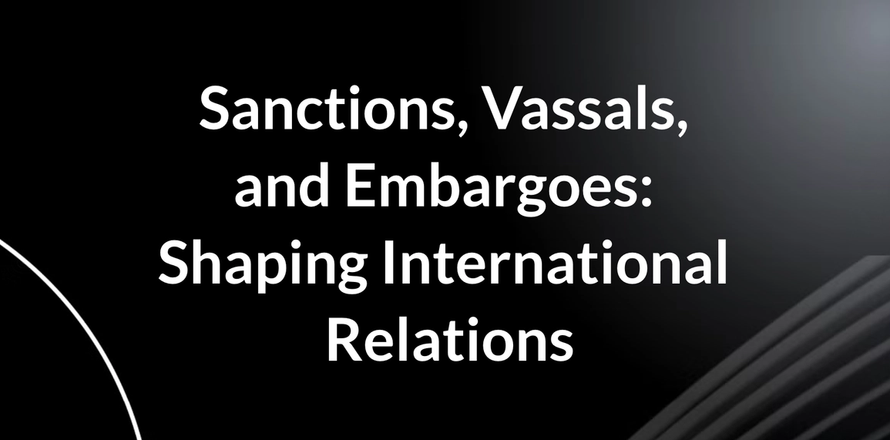Sanctions, Vassals, and Embargoes: The Tools Shaping International Relations

When it comes to the shifting dynamics of global politics and trade, sanctions, vassals, and embargoes play significant roles. They’re tools wielded by nations to influence, pressure, and sometimes reshape the world order. Here's a closer look at what they mean and how they work.
Sanctions: Pressure Without Warfare
Sanctions are measures used by countries to change behaviors, penalize violations of international norms, or push for policy changes – all without resorting to armed conflict. These can take various forms:
- Economic Sanctions target financial and commercial sectors, like banking, oil, or trade. A prime example is the U.S. sanctions on Iran aimed at halting its nuclear development.
- Military Sanctions block the transfer of weapons or military technology, such as the arms embargo placed on North Korea.
- Diplomatic Sanctions cut or reduce official ties between nations, isolating governments over issues like human rights abuses.
- Travel Sanctions are bans on individuals tied to significant violations or corruption, restricting their ability to move freely across borders.
While effective at influencing government actions, sanctions often carry unintended consequences, sometimes impacting the everyday lives of citizens in sanctioned countries.
Vassals: The Politics of Influence and Loyalty
Historically, a vassal pledged loyalty to a more powerful ruler in return for protection or benefits. Fast forward to today, and the term describes a similar relationship, but between states. Modern “vassal states” often align closely with a dominant power – economically, militarily, or politically – which can sometimes mean giving up a degree of sovereignty.
For the vassal state, the trade-off usually includes economic support or security assurances. But this dependency can restrict their decision-making, particularly when it comes to foreign policy, leaving them bound by the interests of their more powerful ally.
Embargoes: Trade and Financial Barriers
An embargo is essentially a hard "no" on trade or interaction with a particular country, often for political, security, or ethical reasons. Embargoes aim to exert pressure by cutting off economic resources or access to goods:
- Trade Embargoes block imports and exports, affecting industries and markets – like the long-standing U.S. embargo against Cuba, which limits economic exchange.
- Arms Embargoes stop the transfer of military equipment and support, as seen with the UN embargo on Libya.
- Financial Embargoes restrict access to global banking systems, impacting a country's ability to engage in international finance, such as the restrictions placed on North Korea.
Embargoes can have far-reaching effects, from creating economic difficulties to shifting political dynamics, making them powerful tools in shaping international relations.
Conclusion: Navigating a Complex Global Stage
Sanctions, vassal relationships, and embargoes are more than just headlines – they are dynamic forces that shape the way countries interact and make decisions. Understanding how these tools are used is key to grasping the bigger picture of international relations, and how they affect nations, businesses, and individuals across the world.